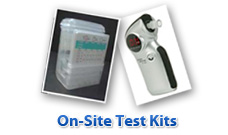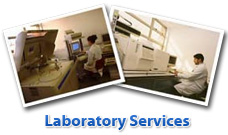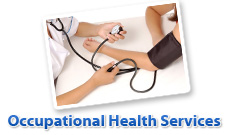Welcome!
Driven by a need to ensure health, safety and well-being of employees, workplace drug screening has become increasingly common in the UK. However, there are still a number of myths surrounding the practice, which can cause apprehension amongst those staff subject to testing.
Where is the Danger?
Many people assume that the impact of drugs and alcohol in the workplace is a very minor issue. We have all seen Christmas drink-driving campaigns and know that drink-driving and drug-driving is not safe, so can’t we rely on people’s judgement? Unfortunately, approximately half of all road and industrial fatalities in the UK involve drink, drugs, or both. Current statistics show that over 70% of drug users are in full-time employment, meaning that the average drug user is, in effect, the average employee. Recent Home Office statistics put the number of 16 to 29-year-olds who used drugs in the last year at just under 50%. So this is not somebody else’s problem, it affects every workplace. Whilst the use of drugs does not automatically mean irresponsibility within the workplace, it does greatly increase the likelihood of accidents, absenteeism, reduced productivity, damage to plant and equipment, litigation and a higher turnover of staff.
So What Can You Do? Isn’t Workplace Drug Screening Disruptive?
Many organisations only conduct testing in the event of an accident, incident, or when they have reasonable grounds for concern that an employee is unfit for duty. Given the wide variety of potential dangers within heavy industrial workplaces, many employers believe it perfectly reasonable to carry out testing on these occasions.
However, random workplace drug screening takes drug testing a stage further, whereby a percentage of the workforce is randomly selected to provide a sample. This sounds invasive, but it is very common for only 5% of the workforce to be screened up to once per year. This means that only one in 20 people will be screened, or as an individual, your chance of being tested would be once every 20 years. Miraculously, this kind of minimal screening has been proven to lower positivity rates from as high as 46% down to as little as 2% in just a few months. This just shows, that the average drug user within the workplace is not addicted, but is simply making lifestyle choices which can be changed.
Could This be Regarded as an Invasion of Civil Liberties and Human Rights?
Whilst some employees can be initially resistant to the prospect of screening, the majority understand that this is being carried out to ensure the safety of everybody within the workplace. As long as the level of testing is proportionate to the dangers within the workplace and does not specifically interfere with staff leisure time, it does not represent a threat to people’s human rights. In the USA, over 98% of the top 1000 companies screen their staff without issue.
Where is the Harm in Using Drugs Outside of Work?
Many drugs have developed a softer image through their exposure in national newspapers and television. Indeed, phrases such as “recreational cocaine use” do a great deal of harm in misleading people. For some individuals, cocaine is more addictive than heroin and cannot be used recreationally without significant risk of addiction. Addiction aside, cocaine purity has dropped from an average 45% purity in 2004 to approximately 25% purity in 2010 (with purity as low as 9% reported). Shockingly, the cutting agents used to bulk out the cocaine range from local anaesthetics, cancer-causing chemicals, pet worming powders, through to cockroach insecticide. The bottom line is you can never trust a drug dealer.
Even drugs previously considered to be soft drugs still carry dangers. Currently in the UK, 92% of people admitted for treatment for mental illness are heavy cannabis users. With this in mind, workplace drug screening truly has the potential to tackle wider social and health problems as it becomes commonplace.
For more information on workplace drug testing and home drug testing kits, visit www.drug-aware.com
About the author: Christopher Evans is the Technical Director of Drug-Aware Ltd, a supplier of drug and alcohol test equipment, laboratory services and drug awareness training. He has trained literally thousands of delegates across hundreds of companies, Her Majesty’s Prison Service, the British police and hospitals across the UK.
Tags: drug screening in the workplace, Drug testing, employee screening, random drug testing, Workplace Drug Screening






